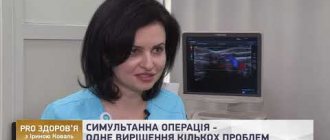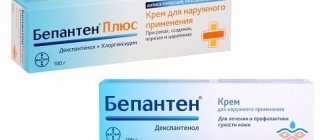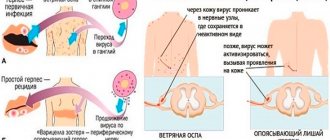How does Botox work after injection?
Botox is a cosmetic drug that contains weakened botulinum toxin. This substance is produced during the life of the bacterium Clostridium botulinum. Scientists have learned to use the special properties of botulinum toxin in cosmetology practice, with the goal of radical rejuvenation of the face and neck.
Botox is administered through subcutaneous injections into the area where expression lines are concentrated - the most unpleasant primary sign of aging. Penetrating into the fibers of the facial muscle, botulinum toxin blocks the mechanism of neuromuscular transmission, causing inhibition of a particular muscular structure of the face. Why is this necessary? Unlike other muscles, the facial muscles are in close contact with the skin, ensuring its tension. When a muscle is exposed to a toxin, it completely relaxes, which leads to the smoothing of the skin attached to it. Visually, this is manifested by the complete smoothing of facial wrinkles and skin creases of varying depths, which transforms and rejuvenates the patient’s face.
As a result of such a radical effect, a person loses the ability to control the muscle. However, contrary to popular belief, the face does not look like an artificial mask at all, which is due to the selective technique of administering the drug. Simply put, the static nature of one individual muscle is completely unnoticeable against the background of active facial movements of the surrounding facial muscles. This is why Botox injections can only be done in a good clinic. Only an experienced cosmetologist will accurately select the area of injection of the drug to achieve the desired result. The doctor performing botulinum therapy must undergo special training and have good experience, otherwise the result may be disastrous.
Speaking about the mechanism of action of Botox after administration, one cannot fail to note the fact that botulinum toxin has temporary activity. In the process of metabolism and enzymatic reactions, the toxin is gradually eliminated from the body, weakening the effect on the muscles and returning the former facial expressions. This can be considered both a positive feature, because the patient does not have to worry about the irreversibility of the effect, and a negative one, due to the need to re-administer the drug to maintain the anti-aging effect.
Botulinum toxin: what is it and how does it help in the fight against wrinkles?
The effect of Botox is achieved due to the neurotoxin botulism type A. It is one of the most dangerous poisons in the world, but in cosmetology such microscopic doses of the substance are used that it is not at all difficult for a professional to control its effect and get a positive result.
Naturally, botulinum toxin is not used in cosmetology in its pure form. It is first stabilized and purified from protein impurities in the laboratory.
The effect of Botox is as follows: with an injection, it enters the muscle, blocking the transmission of nerve impulses in it. As a result, the muscle relaxes, its contraction stops, and as a result, the skin adjacent to it becomes smooth.
Where is Botox injected?
Botox injections are performed using ultra-thin needles, which avoids trauma to the skin and unsightly specific marks. The drug, as already mentioned, is injected into the area of localization of pronounced facial wrinkles.
- Forehead. Most often, injections are made in the frontal area, since Botox is effective in combating vertical wrinkles between the eyebrows, as well as smoothing deep horizontal frontal furrows;
- Eyes and lips. The introduction of Botox into the periorbital and perioral plane of the face will eliminate small expression wrinkles in the corners of the eyes and lips, which are popularly called “crow’s feet”;
- Neck area. Botulinum toxin therapy for the neck is rarely used, but with sufficient qualifications of the doctor, it can maximally correct age-related changes in the neck muscles;
- Nose. So-called “anger lines” on the bridge of the nose can also be corrected with botulinum injections.
Much less often, beauty injections are used to correct facial wrinkles in the lower third of the face, since in this case there is a risk of drooping (sagging) of the muscles that hold the facial contour. That is why the qualifications of the specialist who carries out this procedure are very important here.
Such injections do not cause discomfort to the patient himself, due to the fact that the skin is pre-treated with a local anesthetic solution. In the technique of botulinum injections, it is very important that the specialist correctly determines the area of injection of the drug, since the effectiveness of the procedure will ultimately depend on this factor. In order to eliminate the possibility of error, the doctor may ask the patient to grimace and twist during the procedure in order to determine the area where the largest number of facial folds of skin accumulate.
Why do wrinkles appear on the forehead?
Wrinkles on the forehead first appear as facial wrinkles and can appear even in very young people if they have active facial expressions. They frowned - and there they were, the creases between the eyebrows, and were surprised - the longitudinal furrows on the forehead. With age, expression lines become deeper and become static.
On average, age-related changes on the face occur from the age of 25. It is believed that before this, blood, and with it oxygen and nutrients, flow to the skin of the face in a normal manner, and then their deficiency occurs, as blood circulation is reoriented to internal systems. Because of this, changes occur in both the skin and muscles.
The skin on the forehead loses its firmness and elasticity, and the muscles spasm from overexertion. It turns out that the muscles shorten and the skin gathers into folds.
And don’t think that the formation of wrinkles on the forehead is caused by a spasm of the frontalis muscle only. The process also involves the masticatory and temporal muscles, the occipital muscle (works in tandem with the frontal muscle), the aponeurosis of the head (the tendon structure covering the upper part of the skull) and even the feet.
When does Botox start to work after injections?
Many patients, before this cosmetic procedure, are concerned about the question of how long it takes for Botox to work after introducing the drug under the skin. This topic is relevant for those clients of a cosmetologist who are sure that they can leave the clinic only when the effect of Botox appears. In fact, there is no immediate blockade of the neuromuscular motor impulse after administration of the drug. Typically, noticeable results gradually increase over 3-5 days after injections.
Today, the cosmetology market also offers a popular analogue of Botox – the French drug Dysport, which exhibits a pronounced effect already on the first day after the procedure.
At the same time, when Botox begins to act, it is not at all necessary to remain under the supervision of a doctor, since the effect can be gradually adjusted over three months, after the first use of botulinum therapy, and the most expressive final result can be achieved only after 2 weeks. After this period, it is recommended to undergo an examination with your cosmetologist. The doctor will evaluate the result and, if necessary, “fill in” the missing dose of the drug. Thus, your cosmetologist accurately selects your dose of Botox. It depends how long it takes for Botox to start working, primarily on the individual characteristics of the patient’s metabolism.
How long does the effect of Botox last?
How effective Botox is is perhaps one of the most frequently asked questions. Here it should be understood that there simply cannot be an unambiguous answer to this question, since the duration of local muscle relaxation will, like the speed of achieving the effect, directly depend on the metabolic functions of the body, more simply, on the metabolic rate. However, experts say that after the first administration of the drug, the average duration of action of Botox will be from 4 to 6 months.
Also, speaking about the duration of action of Botox, it is simply impossible not to mention the increased effectiveness of the drug with repeated administration. Repeated injections show a significantly longer lasting effect, which can range from 8 to 12 months. In addition, regular use of botulinum therapy often gives the cosmetologist the opportunity to reduce the dosage. This is largely explained by the fact that being stationary for a long time, the facial muscle loses the “habit” of actively moving, and a person loses the habit of “frowning,” which reduces the load on the facial muscles and the severity of wrinkles.
Is Botox harmful to health?
The question regarding the harms and benefits of Botox remains one of the most pressing for patients who have decided to undergo botulinum rejuvenation. The mechanism of action of the drug frankly frightens the majority of patients, who most often, as practice shows, fear paralytic effects on the surrounding muscles, distortions and drooping of facial muscles and other aesthetic problems. There is absolutely no need to worry about this, since the composition of botulinum preparations is absolutely safe and does not cause complications or side effects.
Such fears fuel unreliable Internet stories and myths about Botox, which, despite the drug being studied, continue to be passed on, as they say, “from generation to generation.” In fact, according to statistics, aesthetic harm from Botox occurs in only 0.14% of patients and is caused only by violations of the drug administration technique. Possible complications also include the following conditions:
- pain in the injection area occurs in 1.3% of patients;
- no more than 2% of people experience mild headaches;
- small hematomas at the injection site occur in 6% of patients only due to the fault of the specialist;
- temporary loss of sensitivity in the injection area is observed in less than 1% of cosmetologist’s clients;
- About 1% of the population is allergic to the drug;
- Infectious contamination of the injection site is extremely rare and is a consequence of non-compliance with the requirements of asepsis and antisepsis during the procedure.
All complications are exclusively temporary and disappear as botulinum toxin is removed from the patient’s body. When discussing unsuccessful botulinum therapy procedures, one cannot help but note that there is a small percentage of people (1-2%) who are resistant to the effects of this toxin and the procedure in this case does not allow achieving a rejuvenating effect.
Botox for the face: pros and cons of the procedure
Policy regarding the processing of personal data 1. General provisions This policy for the processing of personal data is drawn up in accordance with the requirements of the Federal Law of July 27, 2006. No. 152-FZ “On Personal Data” (hereinafter referred to as the Law on Personal Data) and determines the procedure for processing personal data and measures to ensure the security of personal data taken by Accounting 2007 LLC (hereinafter referred to as the Operator). 1.1. The operator sets as its most important goal and condition for carrying out its activities the observance of the rights and freedoms of man and citizen when processing his personal data, including the protection of the rights to privacy, personal and family secrets. 1.2. This Operator’s policy regarding the processing of personal data (hereinafter referred to as the Policy) applies to all information that the Operator can obtain about visitors to the website https://salonmilan.ru/. 2. Basic concepts used in the Policy 2.1. Automated processing of personal data – processing of personal data using computer technology. 2.2. Blocking of personal data – temporary cessation of processing of personal data (except for cases where processing is necessary to clarify personal data). 2.3. Website is a collection of graphic and information materials, as well as computer programs and databases that ensure their availability on the Internet at the network address https://salonmilan.ru/. 2.4. Personal data information system is a set of personal data contained in databases and information technologies and technical means that ensure their processing. 2.5. Depersonalization of personal data - actions as a result of which it is impossible to determine without the use of additional information the ownership of personal data to a specific User or other subject of personal data. 2.6. Processing of personal data – any action (operation) or set of actions (operations) performed using automation tools or without the use of such means with personal data, including collection, recording, systematization, accumulation, storage, clarification (updating, changing), extraction, use, transfer (distribution, provision, access), depersonalization, blocking, deletion, destruction of personal data. 2.7. Operator - a state body, municipal body, legal or natural person, independently or jointly with other persons organizing and (or) carrying out the processing of personal data, as well as determining the purposes of processing personal data, the composition of personal data to be processed, actions (operations) performed with personal data. 2.8. Personal data – any information relating directly or indirectly to a specific or identified User of the website https://salonmilan.ru/. 2.9. Personal data authorized by the subject of personal data for distribution - personal data, access to an unlimited number of persons to which is provided by the subject of personal data by giving consent to the processing of personal data authorized by the subject of personal data for distribution in the manner prescribed by the Law on Personal Data (hereinafter referred to as personal data). data authorized for distribution). 2.10. User – any visitor to the website https://salonmilan.ru/. 2.11. Providing personal data – actions aimed at disclosing personal data to a certain person or a certain circle of persons. 2.12. Dissemination of personal data - any actions aimed at disclosing personal data to an indefinite number of persons (transfer of personal data) or familiarizing with personal data to an unlimited number of persons, including the publication of personal data in the media, posting in information and telecommunication networks or providing access to personal data in any other way. 2.13. Cross-border transfer of personal data is the transfer of personal data to the territory of a foreign state to an authority of a foreign state, a foreign individual or a foreign legal entity. 2.14. Destruction of personal data – any actions as a result of which personal data are destroyed irrevocably with the impossibility of further restoration of the content of personal data in the personal data information system and (or) the material media of personal data are destroyed. 3. Basic rights and obligations of the Operator 3.1. The operator has the right: – to receive from the subject of personal data reliable information and/or documents containing personal data; – if the subject of personal data withdraws consent to the processing of personal data, the Operator has the right to continue processing personal data without the consent of the subject of personal data if there are grounds specified in the Law on Personal Data; – independently determine the composition and list of measures necessary and sufficient to ensure the fulfillment of the obligations provided for by the Law on Personal Data and regulations adopted in accordance with it, unless otherwise provided by the Law on Personal Data or other federal laws. 3.2. The operator is obliged to: – provide the subject of personal data, at his request, with information regarding the processing of his personal data; – organize the processing of personal data in the manner established by the current legislation of the Russian Federation; – respond to requests and inquiries from personal data subjects and their legal representatives in accordance with the requirements of the Personal Data Law; – report to the authorized body for the protection of the rights of personal data subjects, at the request of this body, the necessary information within 30 days from the date of receipt of such a request; – publish or otherwise provide unrestricted access to this Policy regarding the processing of personal data; – take legal, organizational and technical measures to protect personal data from unauthorized or accidental access, destruction, modification, blocking, copying, provision, distribution of personal data, as well as from other unlawful actions in relation to personal data; – stop transfer (distribution, provision, access) of personal data, stop processing and destroy personal data in the manner and cases provided for by the Law on Personal Data; – fulfill other duties provided for by the Personal Data Law. 4. Basic rights and obligations of personal data subjects 4.1. Subjects of personal data have the right to: – receive information regarding the processing of their personal data, except in cases provided for by federal laws. The information is provided to the subject of personal data by the Operator in an accessible form, and it should not contain personal data relating to other subjects of personal data, except in cases where there are legal grounds for the disclosure of such personal data. The list of information and the procedure for obtaining it is established by the Law on Personal Data; – require the operator to clarify his personal data, block it or destroy it if the personal data is incomplete, outdated, inaccurate, illegally obtained or not necessary for the stated purpose of processing, as well as take measures provided by law to protect their rights; – put forward the condition of prior consent when processing personal data in order to promote goods, works and services on the market; – to withdraw consent to the processing of personal data; – appeal to the authorized body for the protection of the rights of personal data subjects or in court against unlawful actions or inaction of the Operator when processing his personal data; – to exercise other rights provided for by the legislation of the Russian Federation. 4.2. Subjects of personal data are obliged to: – provide the Operator with reliable information about themselves; – inform the Operator about clarification (updating, changing) of your personal data. 4.3. Persons who provided the Operator with false information about themselves or information about another subject of personal data without the latter’s consent are liable in accordance with the legislation of the Russian Federation. 5. The Operator may process the following personal data of the User 5.1. Full Name. 5.2. Email address. 5.3. Phone numbers. 5.4. The site also collects and processes anonymized data about visitors (including cookies) using Internet statistics services (Yandex Metrica and Google Analytics and others). 5.5. The above data below in the text of the Policy are united by the general concept of Personal Data. 5.6. The Processing of special categories of personal data relating to race, nationality, political views, religious or philosophical beliefs, intimate life is not carried out by the Operator. 5.7. Processing of personal data permitted for distribution from among the special categories of personal data specified in Part 1 of Art. 10 of the Law on Personal Data is permitted if the prohibitions and conditions provided for in Art. 10.1 of the Personal Data Law. 5.8. The User’s consent to the processing of personal data permitted for distribution is issued separately from other consents to the processing of his personal data. In this case, the conditions provided for, in particular, Art. 10.1 of the Personal Data Law. Requirements for the content of such consent are established by the authorized body for the protection of the rights of personal data subjects. 5.8.1 The User provides consent to the processing of personal data permitted for distribution directly to the Operator. 5.8.2 The Operator is obliged, no later than three working days from the date of receipt of the specified consent of the User, to publish information about the conditions of processing, the existence of prohibitions and conditions for the processing of personal data permitted for distribution by an unlimited number of persons. 5.8.3 The transfer (distribution, provision, access) of personal data authorized by the subject of personal data for distribution must be stopped at any time at the request of the subject of personal data. This requirement must include the last name, first name, patronymic (if any), contact information (telephone number, email address or postal address) of the subject of personal data, as well as a list of personal data whose processing is subject to termination. The personal data specified in this requirement can only be processed by the Operator to whom it is sent. 5.8.4 Consent to the processing of personal data permitted for distribution terminates from the moment the Operator receives the request specified in clause 5.8.3 of this Policy regarding the processing of personal data. 6. Principles of processing personal data 6.1. The processing of personal data is carried out on a legal and fair basis. 6.2. The processing of personal data is limited to the achievement of specific, pre-defined and legitimate purposes. Processing of personal data that is incompatible with the purposes of collecting personal data is not permitted. 6.3. It is not allowed to combine databases containing personal data, the processing of which is carried out for purposes that are incompatible with each other. 6.4. Only personal data that meets the purposes of their processing are subject to processing. 6.5. The content and volume of personal data processed correspond to the stated purposes of processing. Redundancy of the processed personal data in relation to the stated purposes of their processing is not allowed. 6.6. When processing personal data, the accuracy of personal data, their sufficiency, and, where necessary, relevance in relation to the purposes of processing personal data are ensured. The operator takes the necessary measures and/or ensures that they are taken to delete or clarify incomplete or inaccurate data. 6.7. The storage of personal data is carried out in a form that makes it possible to identify the subject of personal data, no longer than required by the purposes of processing personal data, unless the period for storing personal data is established by federal law, an agreement to which the subject of personal data is a party, beneficiary or guarantor. The processed personal data is destroyed or anonymized upon achievement of the processing goals or in the event of the loss of the need to achieve these goals, unless otherwise provided by federal law. 7. Purposes of processing personal data 7.1. The purpose of processing the User’s personal data is: – informing the User by sending emails; – conclusion, execution and termination of civil contracts; – providing the User with access to services, information and/or materials contained on the website https://salonmilan.ru/. 7.2. The Operator also has the right to send notifications to the User about new products and services, special offers and various events. The User can always refuse to receive information messages by sending the Operator an email to the email address marked “Opt-out of notifications about new products and services and special offers.” 7.3. Anonymized data of Users, collected using Internet statistics services, serves to collect information about the actions of Users on the site, improve the quality of the site and its content. 8. Legal grounds for processing personal data 8.1. The legal grounds for the processing of personal data by the Operator are: – statutory (constituent) documents of the Operator; – agreements concluded between the operator and the subject of personal data; – federal laws, other regulations in the field of personal data protection; – consent of Users to the processing of their personal data, to the processing of personal data permitted for distribution. 8.2. The Operator processes the User’s personal data only if it is filled out and/or sent by the User independently through special forms located on the website https://salonmilan.ru/ or sent to the Operator via email. By filling out the appropriate forms and/or sending his personal data to the Operator, the User expresses his consent to this Policy. 8.3. The Operator processes anonymized data about the User if this is allowed in the User's browser settings (saving cookies and using JavaScript technology are enabled). 8.4. The subject of personal data independently decides to provide his personal data and gives consent freely, of his own free will and in his own interest. 9. Conditions for processing personal data 9.1. The processing of personal data is carried out with the consent of the subject of personal data to the processing of his personal data. 9.2. The processing of personal data is necessary to achieve the goals provided for by an international treaty of the Russian Federation or law, to implement the functions, powers and responsibilities assigned by the legislation of the Russian Federation to the operator. 9.3. The processing of personal data is necessary for the administration of justice, the execution of a judicial act, an act of another body or official, subject to execution in accordance with the legislation of the Russian Federation on enforcement proceedings. 9.4. The processing of personal data is necessary for the execution of an agreement to which the subject of personal data is a party or beneficiary or guarantor, as well as for concluding an agreement on the initiative of the subject of personal data or an agreement under which the subject of personal data will be a beneficiary or guarantor. 9.5. The processing of personal data is necessary to exercise the rights and legitimate interests of the operator or third parties or to achieve socially significant goals, provided that the rights and freedoms of the subject of personal data are not violated. 9.6. The processing of personal data is carried out, access to an unlimited number of persons is provided by the subject of personal data or at his request (hereinafter referred to as publicly available personal data). 9.7. We process personal data that is subject to publication or mandatory disclosure in accordance with federal law. 10. The procedure for collecting, storing, transferring and other types of processing of personal data The security of personal data processed by the Operator is ensured by implementing legal, organizational and technical measures necessary to fully comply with the requirements of current legislation in the field of personal data protection. 10.1. The operator ensures the safety of personal data and takes all possible measures to prevent access to personal data by unauthorized persons. 10.2. The User’s personal data will never, under any circumstances, be transferred to third parties, except in cases related to the implementation of current legislation or in the event that the subject of personal data gives consent to the Operator to transfer data to a third party to fulfill obligations under a civil law contract. 10.3. If inaccuracies in personal data are identified, the User can update them independently by sending a notification to the Operator to the Operator’s email address marked “Updating personal data.” 10.4. The period for processing personal data is determined by the achievement of the purposes for which the personal data were collected, unless a different period is provided for by the contract or current legislation. The User may at any time withdraw his consent to the processing of personal data by sending a notification to the Operator via email to the Operator's email address [email protected] marked “Withdrawal of consent to the processing of personal data.” 10.5. All information that is collected by third-party services, including payment systems, communications and other service providers, is stored and processed by these persons (Operators) in accordance with their User Agreement and Privacy Policy. The subject of personal data and/or the User is obliged to independently familiarize himself with the specified documents in a timely manner. The operator is not responsible for the actions of third parties, including the service providers specified in this paragraph. 10.6. Prohibitions established by the subject of personal data on the transfer (except for providing access), as well as on processing or conditions for processing (except for gaining access) of personal data permitted for distribution, do not apply in cases of processing personal data in state, public and other public interests determined by law RF. 10.7. When processing personal data, the operator ensures the confidentiality of personal data. 10.8. The operator stores personal data in a form that makes it possible to identify the subject of personal data for no longer than required by the purposes of processing personal data, unless the period for storing personal data is established by federal law, an agreement to which the subject of personal data is a party, beneficiary or guarantor. 10.9. The condition for terminating the processing of personal data may be the achievement of the purposes of processing personal data, the expiration of the consent of the subject of personal data or the withdrawal of consent by the subject of personal data, as well as the identification of unlawful processing of personal data. 11. List of actions performed by the Operator with received personal data 11.1. The operator collects, records, systematizes, accumulates, stores, refines (updates, changes), extracts, uses, transfers (distribute, provide, access), depersonalizes, blocks, deletes and destroys personal data. 11.2. The operator carries out automated processing of personal data with or without receiving and/or transmitting the received information via information and telecommunication networks. 12. Cross-border transfer of personal data 12.1. Before the start of cross-border transfer of personal data, the operator is obliged to ensure that the foreign state into whose territory it is intended to transfer personal data provides reliable protection of the rights of personal data subjects. 12.2. Cross-border transfer of personal data to the territory of foreign states that do not meet the above requirements can only be carried out if there is written consent of the subject of personal data to the cross-border transfer of his personal data and/or execution of an agreement to which the subject of personal data is a party. 13. Confidentiality of personal data The operator and other persons who have access to personal data are obliged not to disclose to third parties or distribute personal data without the consent of the subject of personal data, unless otherwise provided by federal law. 14. Final provisions 14.1. The User can receive any clarification on issues of interest regarding the processing of his personal data by contacting the Operator via email 14.2. This document will reflect any changes to the Operator’s personal data processing policy. The policy is valid indefinitely until it is replaced by a new version. 14.3. The current version of the Policy is freely available on the Internet at https://salonmilan.ru/.
Which Botox is better to inject?
The modern cosmetology market offers several drugs that contain botulinum toxin type A. The most popular, in addition to the world-famous American Botox, can also be considered the French drug Dysport. The main differences between these products are the dosage of botulinum toxin, as well as the speed of formation and duration of the final effect. An experienced cosmetologist will help you choose the most suitable drug for yourself, but most experts recommend giving preference to the classic American Botox from the Allergen company, due to the greater knowledge of this product.
At what age can Botox be injected?
Manufacturers do not indicate clear restrictions on the age group, however, most specialists do not work with patients under 18 years of age. Moreover, at such a young age, there are most often no clear indications for such radical anti-aging therapy. The only exceptions are individuals who have a genetic predisposition to the formation of facial wrinkles. Many people mistakenly believe that this phenomenon is associated with overly active facial expressions, but in fact this factor is of secondary importance, after heredity.
When answering the classic question, at what age can Botox be injected, most experts still determine the age group from 30 to 45 years, when the drug will demonstrate the most pronounced effectiveness. At the same time, for elderly patients over 60 years of age, the relevance of Botox is lost every year, due to the manifestations of age-related tissue ptosis, which is noticeable even when the muscle is in a relaxed state.
Botox in cosmetology
The migration of Botox to cosmetology was inevitable. And we owe this to the American doctors, the Carruthers spouses. While using Botox to treat some kind of eye muscle disorder, they noticed a smoothing effect in the forehead area. Oh miracle, revolution, sensation! One injection and no wrinkles.
So, since the early 1990s, the gears of the giant business of eliminating wrinkles with the help of miraculous Botox injections have been turning. Allergan began to shovel money. “Magic” procedures bring Botox manufacturers several billion dollars a year.
In Russia, Botox was officially approved in 1994.
Can Botox be done during pregnancy?
The use of Botox during pregnancy has not been sufficiently studied to date, so it is better to avoid this procedure while pregnant. At the same time, Botox is not contraindicated when planning pregnancy, since this procedure does not have a systemic effect on the woman’s body.
If, however, beauty injections were given at a time when the woman was not yet aware of her interesting situation, there is no reason to panic. The vast majority of the fair sex, who decided to take care of their beauty during this difficult period, did not notice any side effects or complications during pregnancy. As for the question of whether Botox can be injected while breastfeeding, there can be no restrictions here, since the drug does not pass into the milk of a nursing woman.
Preparing for the session
Before a botulinum therapy session, careful preparation is required:
- do not drink alcohol the day before the session;
- 3 days in advance – stop taking antibiotics;
- a week before - stop taking medications that reduce blood clotting;
- on the day of the procedure - do not play sports, do not visit a massage therapist, do not swim or tilt your head for a long time, do not apply cream to your facial skin.
Foods high in salt and spices retain water in the body. This diet leads to swelling. If you are planning Botox injections, you should avoid salty and spicy foods.
Botulinum toxin can manifest itself in unexpected ways, therefore, if the patient has never attended such procedures, allergy tests are required. Botox is not a hypoallergenic drug; an allergic reaction may occur.










